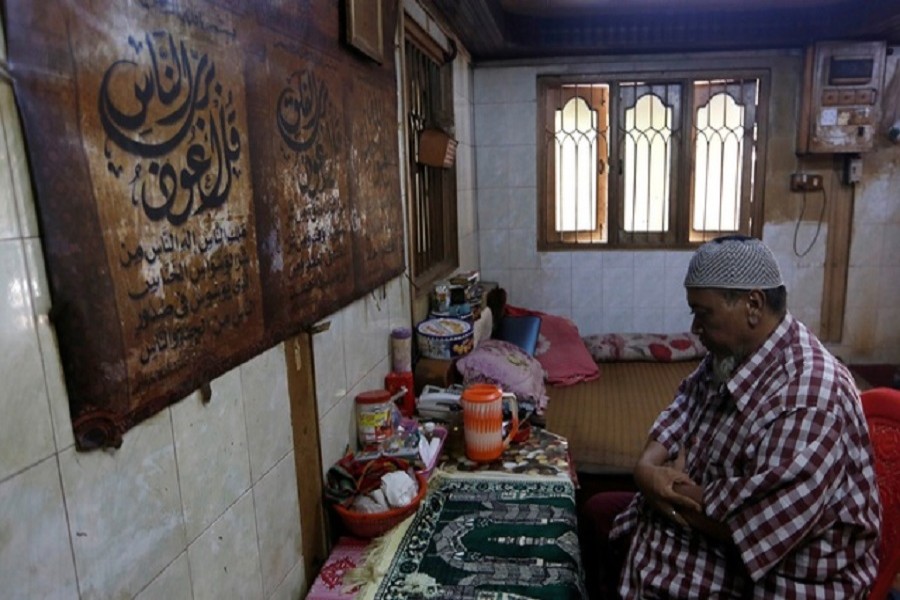When Cho Nwe Soe went to a Yangon court last month with her husband, she expected he would be fined for organising prayers in the street without a permit last year, and that they could go back home to prepare for Ramadan - the Muslim holy month.
Instead, her 41-year-old husband Aung San Lin and six other Myanmar Muslims, who last year organised the Ramadan street prayers after local madrassas were shuttered by Buddhist nationalists, were sent to jail for three months.
"I went insane. I didn't know what to do," said Cho Nwe Soe, wiping away her tears. She was speaking at the teashop the couple have run together for 12 years in Yangon's eastern Thaketa township, home to many of the city's Muslims.
The prison terms have unsettled many Muslims in Buddhist-majority Myanmar, and prompted human rights monitors to urge the government of Nobel Peace Prize laureate Aung San Suu Kyi to guarantee religious freedoms.
Global attention on the position of Muslims in Myanmar has largely focused on the Rohingya minority in the western state of Rakhine, after an army crackdown sent nearly 700,000 fleeing to Bangladesh. Activists say the jailing of the prayer leaders is a reminder that Muslims across the Southeast Asian nation face forms of discrimination and curbs on basic rights.
"Clear religious discrimination, and blatant violation of freedom of religion," said Phil Robertson, deputy Asia director of Human Rights Watch, in a tweet following the sentencing.
Myanmar government spokesman Zaw Htay was not available for comment.
Two Yangon madrassas, which served as both religious schools and places of worship, were closed by local authorities last May under pressure from Buddhist nationalists, on the grounds they were operating without official approval.
Scared to pray
Now, Cho Nwe Soe, who is also 41 and converted from Buddhism to Islam after getting married some 25 years ago, has to run the teashop and look after her children, including a baby daughter, on her own.
Their shop is a small room with Islamic prayers in Arabic hanging from the walls and more than a dozen dilapidated tables perched on an uneven wooden floor. One of the madrassas shuttered in last year's crackdown was close to the teashop, and since then many customers have been lost.
Muslims in Myanmar began celebrating Ramadan on Thursday. During the holy month, Muslims fast from dawn to sunset.
"If praying is a crime, we need to imprison the whole human race," said 56-year-old Tin Shwe, a headmaster at one of the two closed madrassas, whose son, Soe Moe Oo, was also sentenced last month. "Now people are even scared to pray together."
Cho Nwe Soe and Aung San Lin have always spent their Ramadan praying and running the business together, but this year she says she will close the teashop. Cho Nwe Soe said she cannot handle the workload - which means waking up before dawn and working until after sunset - alone.
"I also want to focus on prayers for my husband during this holy month, even if my customers want me to keep the place open," said Cho Nwe Soe, as she put on her black hijab with pink and blue patterns.
During Eid al-Fitr, the celebration that marks the end of Ramadan, the couple normally celebrate by cooking snacks and visiting relatives.
This year, however, Cho Nwe Soe has cancelled all the visits - she will only cook samai, a dish of sweet fine vermicelli noodles mixed with warm milk, and take it to Aung San Lin.
"I won't celebrate this year," she said. "I'll just visit my husband in prison and spend time with him."


